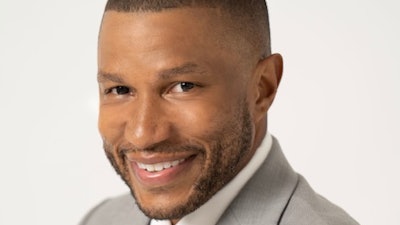Boycotts have long been a powerful tool in the fight for civil rights. After calling for the boycott of the bus system in Montgomery, Alabama, then Montgomery Improvement Association (MIA) President Dr. Martin Luther King Jr., called Rev. T.J. Jemison of Baton Rouge, Louisiana, for guidance on how to proceed as Jemison had led a 10-day boycott in that city in June 1953.
 Dr. Marcus Bright
Dr. Marcus Bright
A different form of “carpool” system will be needed for the proposed boycott of Black student-athletes going to Florida public colleges and universities to move from proclamation to implementation. I previously wrote about the recommendation to modify the National Association for the Advancement of Colored People’s (NAACP) call for a boycott in response to the dismantling of diversity, equity, and inclusion (DEI) initiatives in Florida to be modified to target the football programs at the University of Florida (UF) and Florida State University (FSU).
This would make the development of a “carpool” system for Black student-athletes to still get where they want to go in terms of their aspiration and experiences in lieu of doing it at UF or FSU. This “carpool” system would consist of two primary components: comparable scholarships and name, image, and likeness (NIL) opportunities.
One vehicle for this would be the development of an alternative collective that would facilitate opportunities comparable to what they would have had at UF or FSU. Collectives have become major players in the world of college athletics overall and recruiting specifically.
Collectives, as described by an Associated Press article “seek donations from boosters, alumni, and fans and then arrange opportunities for athletes to be paid for endorsements, public appearances, autograph-signing and posting branded content to their personal social media channels.”
They are typically how most student-athletes receive monetary compensation through NIL deals. Asking student-athletes and their families to sacrifice hundreds of thousands and sometimes millions of dollars without offering a comparable alternative is not feasible on a large-scale level.
The NAACP’s call for this boycott underscores the urgent need to address systemic inequalities and uphold the principles of diversity equity, and inclusion within higher education institutions. In this context, the proposed alternative collectives aimed at supporting Black student-athletes take on added significance. These collectives would not only provide a pathway for athletes to navigate the changing landscape of college athletics but also serve as a form of resistance against practices that undermine inclusivity and representation.
Additionally, these collectives would operate as beacons of support, leveraging financial resources to enable athletes to capitalize on name, image, and likeness (NIL) opportunities while fostering a sense of community and solidarity.
In the spirit of historic movements that have challenged the status quo, the concept of alternative collectives can emerge as a progressive response to the attacks on DEI programs. This potential paradigm shift can not only pave the way for individual success but also help to foster a culture of resilience and empowerment within the broader student-athlete community.
Dr. Marcus Bright is an author and social impact professional.
















